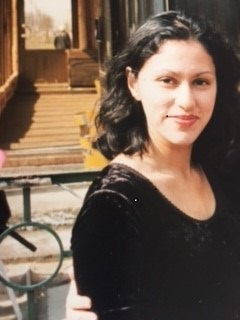“Every day was new, creative and challenging, and it was beautiful to watch our students growing and developing their identities day by day.”
 This year marks 21 years of the Graduate Entry Medicine programme at St George’s, University of London. To mark this milestone, we will be sharing reflections from staff, students and alumni of the course throughout the year, culminating in an on-site celebration at St George’s. Reader in Medical Education, Director of MBBS Development and member of the original Graduate Entry Medicine team, Dr Shehla Baig, spoke to us to share her reflections of the early days of this ground-breaking programme.
This year marks 21 years of the Graduate Entry Medicine programme at St George’s, University of London. To mark this milestone, we will be sharing reflections from staff, students and alumni of the course throughout the year, culminating in an on-site celebration at St George’s. Reader in Medical Education, Director of MBBS Development and member of the original Graduate Entry Medicine team, Dr Shehla Baig, spoke to us to share her reflections of the early days of this ground-breaking programme.
“Cannizaro 1999…. a small group of us, all of us doctors, led by Peter McCrorie (Course Director at the time), met to design an undergraduate medical degree ‘from scratch.’ There were no limits on our thinking. We all wanted active learning, the craft of practice and developing humanity to be upfront and central throughout.
We designed the integrated learning week, where the problem-based learning case of the week was completely integrated with clinical visits, basic, clinical and social sciences and ethics. At the end of the day, Frank Hay, Sean Hilton and Terry Poulton, the original thinkers and innovators that had secured the bid, arrived to listen to our deliberations. There was an inevitable cycle of tension, debate and moving forward which would continue over the year as more and more waves of academic, doctors and finally students, joined the creative, collegiate and educational atmosphere that was the Graduate Entry Programme.
“A few memories stand out for me. Over the first two years, I visited and recruited over 40 General Practices. They were immediately on board with the principles and backed the course wholeheartedly. Their skill and enthusiasm were central to the course's success. There are too many to name all of them, but Carrie Chill, Maggie Walker and Nassif Mansour come to mind. The students visited fortnightly, hearing from people with a lived experience of the disease under study, and learning the skills of examination with a trusted tutor.
“And then the students arrived! I was younger than many of them, and I remember being terrified. They were keen, energetic and I think some were as terrified as me. Every day was new, creative and challenging. Students were studying the problems we had written and engaging with them heart and mind because of the people they had met with their GP. It was beautiful to see the science, skills and humanity coming together and watch them, despite their fears, growing and developing their identities day by day.”